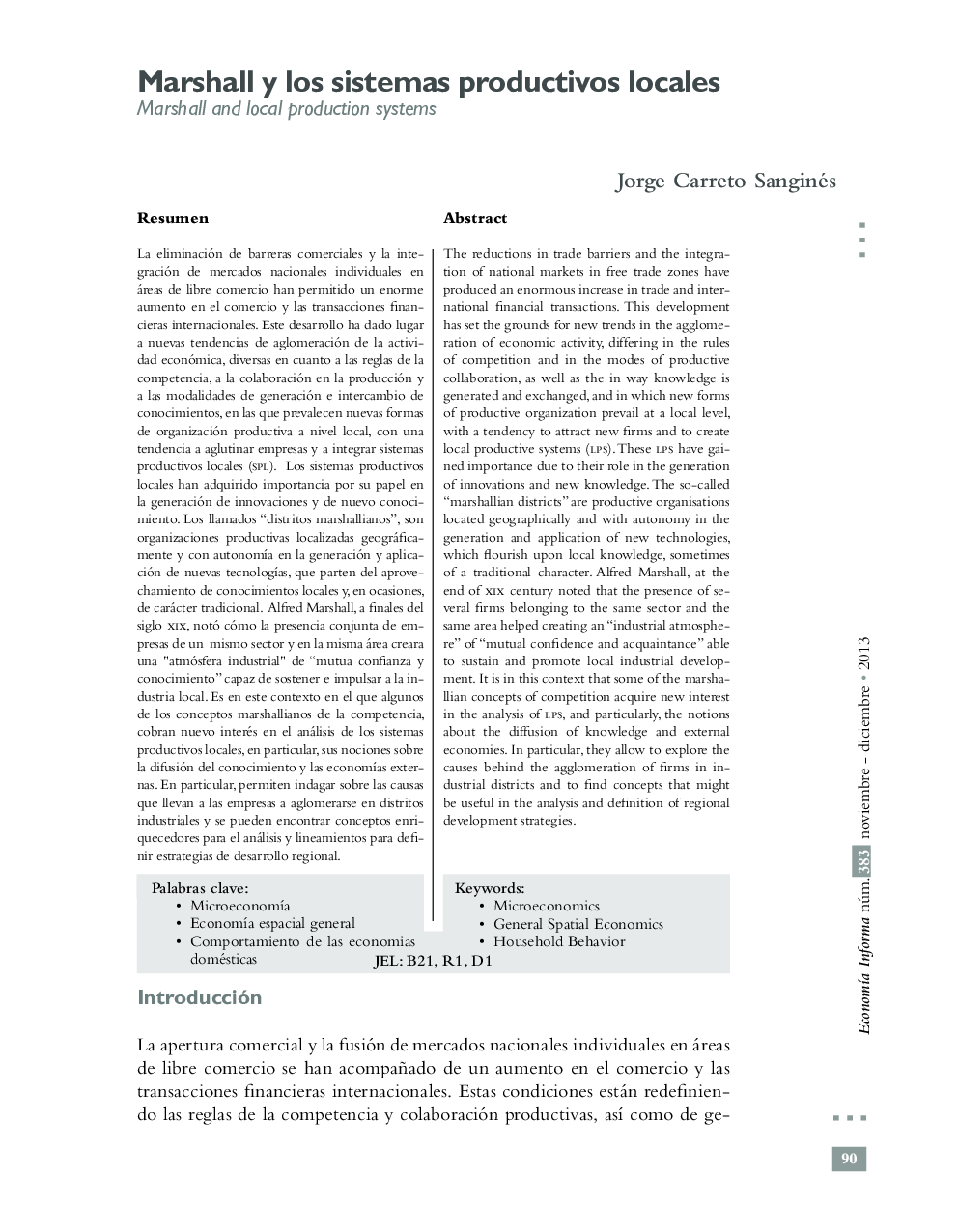| Article ID | Journal | Published Year | Pages | File Type |
|---|---|---|---|---|
| 7345567 | Economía Informa | 2013 | 17 Pages |
Abstract
The reductions in trade barriers and the integration of national markets in free trade zones have produced an enormous increase in trade and international financial transactions. This development has set the grounds for new trends in the agglomeration of economic activity, differing in the rules of competition and in the modes of productive collaboration, as well as the in way knowledge is generated and exchanged, and in which new forms of productive organization prevail at a local level, with a tendency to attract new firms and to create local productive systems (lps). These lps have gained importance due to their role in the generation of innovations and new knowledge. The so-called “marshallian districts” are productive organisations located geographically and with autonomy in the generation and application of new technologies, which flourish upon local knowledge, sometimes of a traditional character. Alfred Marshall, at the end of xix century noted that the presence of several firms belonging to the same sector and the same area helped creating an “industrial atmosphere” of “mutual confidence and acquaintance” able to sustain and promote local industrial development. It is in this context that some of the marshallian concepts of competition acquire new interest in the analysis of lps, and particularly, the notions about the diffusion of knowledge and external economies. In particular, they allow to explore the causes behind the agglomeration of firms in industrial districts and to find concepts that might be useful in the analysis and definition of regional development strategies.
Related Topics
Social Sciences and Humanities
Economics, Econometrics and Finance
Economics and Econometrics
Authors
Jorge Carreto Sanginés,
